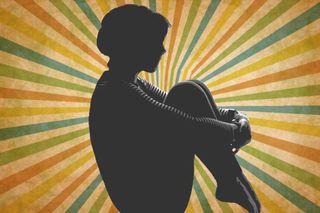
Depression Is Three Times More Common Among Young Adults with Autism
But we still don’t know why.

The largest to-date study of autism spectrum disorder (ASD) and mental health has concluded what clinicians have been noticing in their offices: that young adults with autism are more at risk for depression than their typical peers. The finding adds to earlier, smaller-scale studies that have arrived at similar conclusions.
However, ultimately, the study raises more questions than it answers. But its findings will help researchers ask better questions going forward — and hopefully develop better ways of ensuring people with autism get mental health support if they need it. Autism, to varying degrees, is characterized by difficulty socializing and communicating. Depression can further inhibit these skills, isolating people with ASD further.
The study was based in Sweden and involved data from more than 200,000 people with and without autism, including full- and half-siblings of people with autism. It concluded that by age 27, adults with autism experience depression at roughly three times the rate of the general population. They also experience depression at roughly two times the rate of their non-autistic siblings — a critical insight, given that both autism and depression can be hereditary. (The siblings themselves were only slightly more likely to experience depression than the general public.)
Unfortunately, it’s still not clear why people with autism are more prone to depression. If genes were the sole cause of escalated depression risk, we could expect the rate of typical siblings’ depression to be closer to the rate of depression in autistic people. And it’s questionable whether genetics plays a role at all; the siblings’ slight elevation in mental health problems might be due to something completely unrelated to their shared DNA.
“For example, [non-autistic siblings] may receive less parental attention because of their autistic sibling with greater needs or may experience other stressors or discord in the household, or they may be more likely to have closer monitoring because their sibling has a diagnosis of autism,” posit the study’s authors.
The researchers also found that depression rates varied widely even among people with autism. For instance, depression was more common among autistic people who do not also have an intellectual disability, compared to people with both autism and an intellectual disability.
But even that finding doesn’t have an explanation. People with autism, but without an accompanying intellectual disability, might be more sensitive to their differences, the authors suggest. However, “individuals with lower cognitive ability may also not have sufficient verbal skills to express their difficulties and often require a diagnosis to be based on behavioral features, which may be more easily missed than verbal reports of depressive features.”
Related:
Liesl Goecker is The Swaddle's managing editor.
Related


Study: Father’s Diet May Affect Sperm Quality, Kids’ Long‑Term Health
